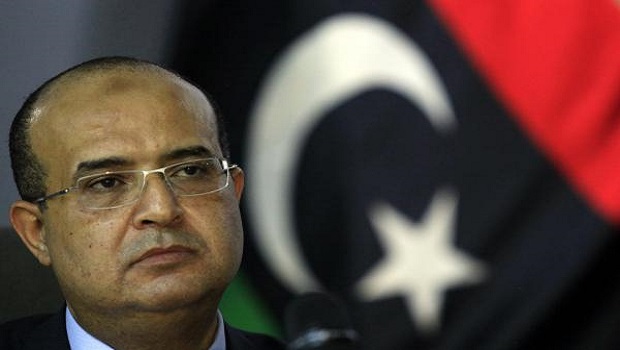
Libya’s Deputy Prime Minister Awad al-Barasi speaks during a news conference announcing his resignation in Benghazi August 3, 2013. REUTERS/Esam Al-Fetori
General Obaydi told journalists at his appointment ceremony: “Today, we see an example of democracy in action in the peaceful handover of the military institution to a new leadership, which only has loyalty to God and country.”
He added that “the military institution must be spared any malicious rumors, especially on social media websites, and all parties must give the army leadership the opportunity to plan the rebuilding and restructuring of the army,” urging everyone to “be committed and stand together to build a new image for the national army, which is expected to protect our people and territory.”
Also in Libya, Deputy Prime Minister Awad Baraasi resigned from the interim government on Saturday night, citing the government’s inability to exercise its powers as a reason for his resignation.
In a statement he read at a news conference in Benghazi, Baraasi talked about “difficulties and challenges represented by the lack of authority given to the deputies of the head of the interim government.”
He said: “The lack of authority has hindered all efforts to deal with the government’s privileges and responsibilities towards the security situation in Benghazi and Libya as a whole.” He added that he had “worked hard since the formation of the interim government to help improve the living standards of the Libyan people and to build state institutions, the most important of which being the military, police and intelligence institutions.”
Baraasi said: “Most of the problems that occurred in various areas, and what followed in the form of a deterioration in security and the escalation in violence, were caused by the government policies.”
